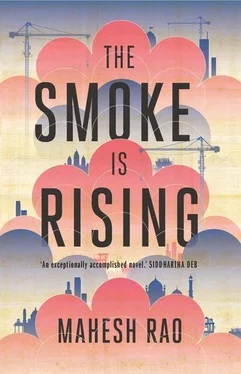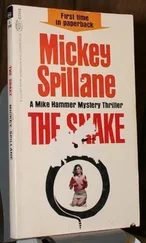Support for the ‘Geneva of the East’ campaign at the MTA was far from universal. A number of board members expressed their reservations in bald terms. One of the more pessimistic views was that it would simply invite ridicule and contempt, succeeding only in singling Mysore out as a city of deluded imbeciles. Another detractor felt that the campaign reeked of colonial sycophancy. He was later compelled to add that he was perfectly aware that Switzerland had not been in possession of any colonies and that he was gravely disappointed that some of his colleagues could not grasp simple critical concepts.
A further series of meetings were called in an attempt to make a final decision. As discussions continued, one fact became clear: the pulsing need for HeritageLand was being felt more keenly than ever.

The jets of water from the sprinklers at the Mysore Regency Hotel shot up like silver streamers on the expansive front lawn. The sprinklers were fed by an enormous reserve tank, which in turn drew upon one of two bore wells on the property. A third had run dry a few years ago. Mysore’s public water supply was somewhat unreliable even at the height of the rainy season, so this year, after five dry months, expectations were not great. In any case, Mysore’s custodians of luxe were accustomed to navigating their way around the shortcomings of the municipal authorities. The hotel often purchased water from private suppliers and the results were more than satisfactory. A healthy thicket of palms by the main gate provided the security guards with some shade. On the borders below the wide verandas the camellias were flourishing, and despite the prolonged summer their leaves had retained their imperial gloss.
The driveway curved around the front lawn and stopped at the grand Indo-Saracenic foyer. A turbaned doorman opened car doors to allow visitors to walk up the mosaic steps towards the front desk, burnished with furniture wax and the best hospitality training. The mahogany writing desk in a corner of the room was said to be a replica of the one owned by Sethu Lakshmi Bayi, Maharani of Travancore. The windows next to the reception hardly let in any light as they were almost covered by a lunatic cascade of allamanda vines that dropped to the ground outside. The reception area was lit by the amber cups of a Hyderabadi chandelier, their glow reflected in the shards of mirror that studded the occasional tables. On the other side of the front desk, a set of brass doors led to the veranda bar, the Burra Peg.
The hotel had always been popular with British and French tourists, and these days select Russian and Chinese guests too. Security had recently been tightened and cars were inspected with particular care when the occupants were young men displaying an unnatural intensity. On most Saturday evenings during auspicious months a white marquee would be hoisted up over the lawn, strings of milky lights looped between its poles. A happy couple would accept the assembled company’s best wishes, drifting around the tables covered in stiff alabaster damask and strewn with miniature candles and champagne roses. At a given moment, the band would start up in a riot of congratulatory blasts, and a few moments later the hotel switchboard would be jammed with calls from furious hotel guests.
A few discreetly placed paving stones skirted around the edges of the front lawn to the staff entrance, located at the back of the hotel and screened off by an imposing bamboo. Here the ravages of the summer were more apparent. Ashen tufts on the ground in front of the laundry had been abandoned to their fate. The hydrangeas lining the unloading bay were globes of mauve dust waiting for a rare gust to blow them apart.
Mala looked at her watch as she approached the staff entrance. She was slightly early so she stood in the shade of the bamboo for a few seconds, wiping the back of her neck with a handkerchief.
Inside the hotel, in a small office behind the front desk, the other two employees of the accounts department were already at work. Mr Tanveer was the ‘in-charge’, a responsibility he bore with all due solemnity. Given to bouts of pronounced anxiety, his predisposition was given away by the habitual expression on his face, that of a man who had just fallen down a well. He tried, at least at the outset, to take a generous view of his friends and colleagues but found that his confidence was seldom rewarded, a fact that often instigated a theological enquiry: why had God created man, if not to disappoint Mr Tanveer? Apart from his unyielding commitment to his duties, he was also known for the startling array of items he carried in the pockets of his trousers. A hole punch, a self-help book, an unripe mango and a spanner had all been produced, at one time or another, from those seemingly bottomless repositories.
Opposite Mr Tanveer sat Shipra, originally from Mumbai, noted at work for her large hands, which she liked to adorn with numerous turquoise rings.
‘Shipraji, did you check those figures from yesterday? What had that girl done?’ asked Mr Tanveer, his head suddenly shooting up.
‘No idea, sir. Here, I have redone part of the report but should I finish the whole thing?’
‘No, can you speak to her when she comes in and kindly do the needful? Try and make her understand again what has to be done and ask her to finish it by business close.’
‘Okay sir, surely I’ll do that.’
Mr Tanveer sighed, his expression tightening into even greater distress.
‘You know, this is what happens when people get jobs through influence. After that they can just make merry but it all falls on someone else’s head,’ he said.
‘Is she from some big-shot family?’
‘No no, she is from some small, godforsaken place, but her brother-in-law is that Anand.’
‘Which Anand?’
‘G S Anand.’
‘Which Anand?’
‘What which-Anand which-Anand, I’m telling you, no? That fellow who owns Exospace.’
‘Oh I see.’ Shipra still looked blank.
‘Yes. So he asked our big man to give this girl a position and now they have put her here. Our misfortune.’
‘There are so many capable people, sir, with no hope of getting a job and look here.’
‘I know. What can you do?’
Shipra adjusted one of her rings.
‘But sir, maybe she’ll learn. You never know.’
Mr Tanveer’s head shot up again: ‘Shipraji, she will not learn. That much I know.’

Mala’s parents had always agreed that the important thing was for her to graduate. The field of study was not of great importance as, it had to be admitted, she had never shown a strong aptitude in any particular area. The point was that a degree was essential for any kind of economic independence, and of course, even married women needed to be economically independent these days. A modest donation had enabled her to secure a place at the private RMV College. Rather surprisingly, a marriage proposal had arrived while she was still in the second year of her commerce degree. The young man in question was, however, a translator at a small publishing house and probably did not earn enough to support himself, let alone a family.
Rukmini had refused to even consider the offer. As far as possible, she was determined not to condemn her daughters to a life of the constant mental arithmetic that came with paring and pruning the budget. Babu had reached the same conclusion too, although perhaps swayed by a different consideration: the output of the publishing house in question seemed limited mainly to a tawdry range of detective novels set in the red-light districts of Chennai. In any case, Mala needed to complete her degree; then the quest for a husband could begin in earnest.
Читать дальше













